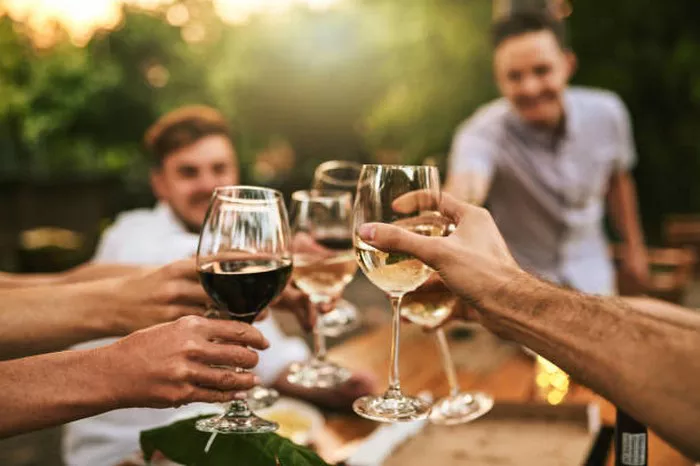Sparkling wine is synonymous with celebrations and special occasions, but what happens when you don’t pop the cork right away? Many wine enthusiasts wonder how long an unopened bottle of sparkling wine can be stored without compromising its quality. In this professional article, we will delve into the shelf life of unopened sparkling wine, factors affecting its longevity, and tips on ensuring your bubbly remains enjoyable for as long as possible.
Understanding Sparkling Wine
Before we explore the shelf life of unopened sparkling wine, let’s take a moment to understand what sparkling wine is. Sparkling wine is a type of wine that contains significant levels of carbon dioxide, creating bubbles, effervescence, and a refreshing sparkle when opened. The most famous style of sparkling wine is Champagne, but many other regions produce their own versions, including Prosecco, Cava, and sparkling wines from various New World regions.
The Shelf Life of Unopened Sparkling Wine
The shelf life of unopened sparkling wine depends on several factors, and while it can vary, it generally falls within a certain range.
Non-Vintage vs. Vintage: Non-vintage sparkling wines are typically intended for immediate consumption and may have a shelf life of 3-5 years or even longer when stored correctly. Vintage sparkling wines, on the other hand, are made from exceptional harvests and can often age longer, sometimes up to a decade or more.
Wine Quality: The quality of the sparkling wine plays a significant role in its aging potential. High-quality sparkling wines, such as vintage Champagne or well-crafted sparkling wines, tend to age gracefully and develop complex flavors.
Storage Conditions: Proper storage is crucial. Sparkling wine should be kept in a cool, dark, and humidity-controlled environment. Storing it upright to minimize the surface area in contact with the cork can help prevent premature aging.
Closure: The type of closure also matters. Traditional cork closures are more breathable and may allow for gradual aging, while crown caps (common in sparkling wine) offer a better seal and can extend the wine’s shelf life.
Sparkling Wine Style: The specific style of sparkling wine affects its aging potential. Blanc de Blancs (made from 100% Chardonnay) often age longer than Blanc de Noirs (made from red grape varieties) due to their lighter profiles.
Factors Affecting Sparkling Wine Shelf Life
Several factors can influence how long an unopened bottle of sparkling wine will last:
Grape Variety: The grape variety used to make the sparkling wine plays a role in its aging potential. Some grape varieties have natural acidity and characteristics that lend themselves to longer aging.
Winemaking Techniques: The winemaking techniques employed by the producer, including the amount of sugar, yeast, and time spent on the lees, affect the wine’s aging potential.
Vintage: The quality of the harvest year, referred to as the vintage, can significantly influence the aging potential. Exceptional vintages tend to produce wines with longer shelf lives.
Alcohol Content: Wines with higher alcohol content tend to age longer because alcohol acts as a preservative. Most sparkling wines have moderate alcohol levels, typically falling between 11% and 13%.
Acidity: The natural acidity of sparkling wine, especially in high-quality examples, can help preserve the wine and contribute to its longevity.
Aging on Lees: Sparkling wines that spend more time aging on their lees (the dead yeast cells) can develop complex flavors and age longer. This process is common in traditional Champagne production.
Tips for Extending the Shelf Life of Sparkling Wine
If you want to ensure that your unopened bottle of sparkling wine lasts as long as possible, consider the following tips:
Store in Ideal Conditions: Keep the sparkling wine in a cool, dark, and humidity-controlled storage area. The ideal temperature for storing sparkling wine is around 55°F (12-14°C). Avoid large temperature fluctuations and exposure to direct sunlight.
Minimize Light Exposure: Light can degrade the quality of the wine. Store bottles away from direct sunlight and fluorescent light sources.
Keep the Bottle Upright: Unlike still wines, sparkling wine should be stored upright to minimize the surface area in contact with the cork. This helps prevent the cork from drying out and oxidation.
Maintain Consistent Humidity: Proper humidity levels (around 70% relative humidity) help keep the cork from drying out, preventing air from entering the bottle.
Choose the Right Closure: If you have a choice, opt for sparkling wines with crown caps rather than traditional corks. Crown caps offer a better seal and longer shelf life.
Avoid Strong Odors: Store sparkling wine away from strong odors, as it can easily absorb them through the cork.
When to Enjoy Your Sparkling Wine
While unopened sparkling wine can have a significant shelf life, it’s also essential to recognize that sparkling wine is created with the intention of being enjoyed. Consider the following guidelines for when to open that special bottle:
Non-Vintage Sparkling Wine: Non-vintage sparkling wines are typically crafted for immediate consumption. Enjoy them within a few years of purchase to experience their vibrant and fresh flavors.
Vintage Sparkling Wine: Vintage sparkling wines are often designed to age longer and develop complexity. Plan to open them on special occasions or when they reach their peak maturity.
Special Occasions: Sparkling wine is the quintessential choice for celebrations and special moments. There’s no better time to open a bottle than when you have something to celebrate.
Champagne Moments: Open a bottle of sparkling wine when you simply want to enjoy life’s everyday pleasures. The effervescence and crispness of sparkling wine can make any moment feel like a special occasion.
Conclusion
The shelf life of an unopened bottle of sparkling wine depends on various factors, including the wine’s quality, grape variety, winemaking techniques, and storage conditions. High-quality sparkling wines and vintage Champagnes, when stored correctly, can age gracefully for many years. However, it’s essential to remember that sparkling wine is meant to be enjoyed.


